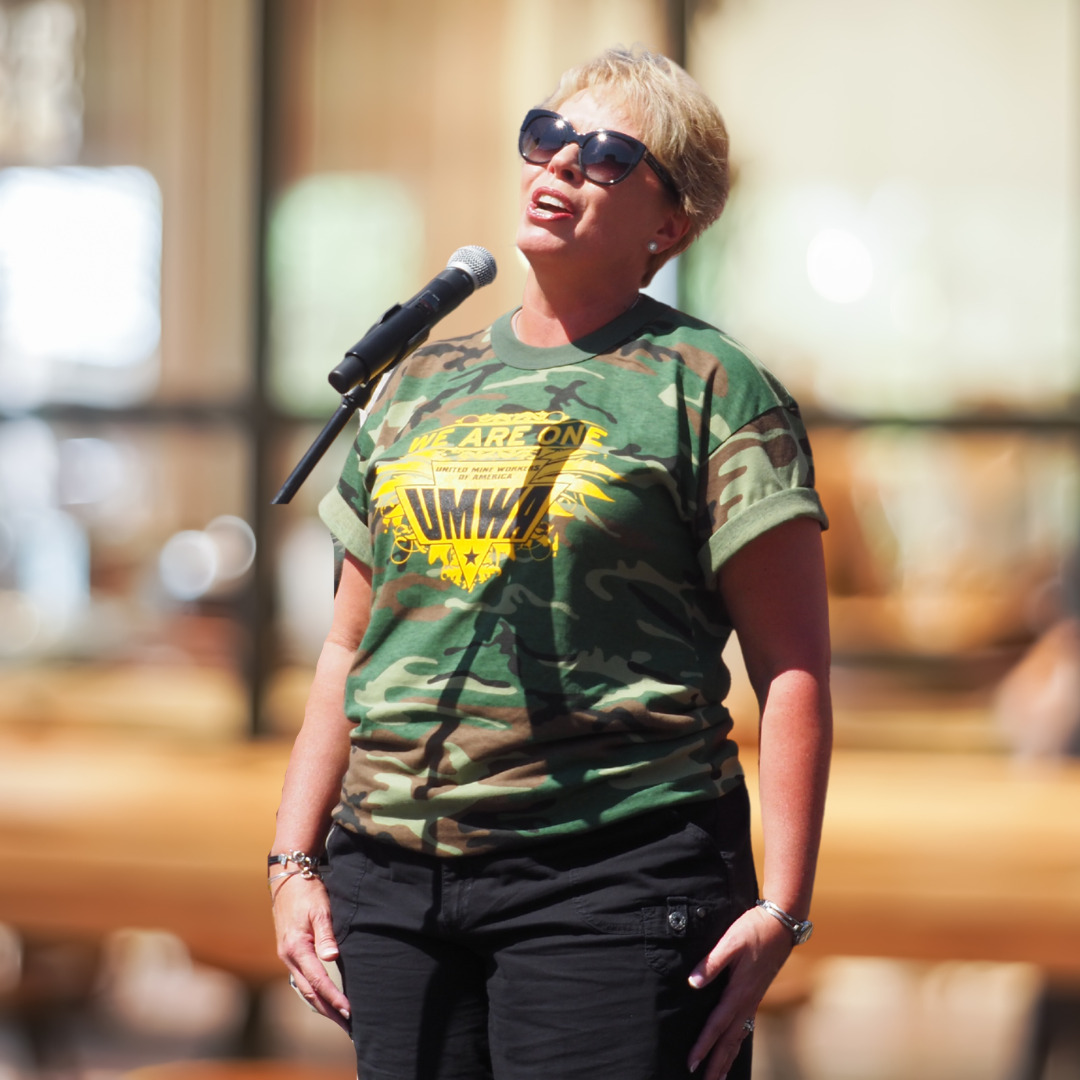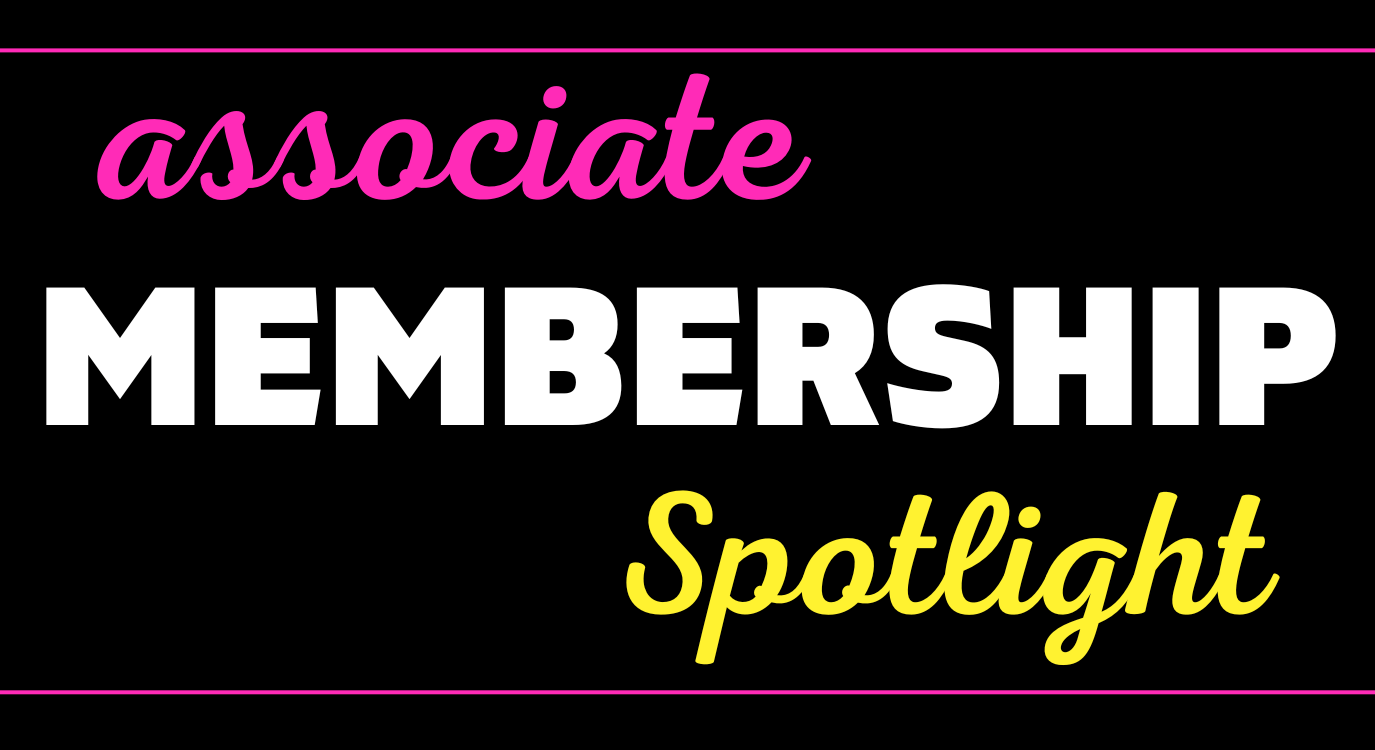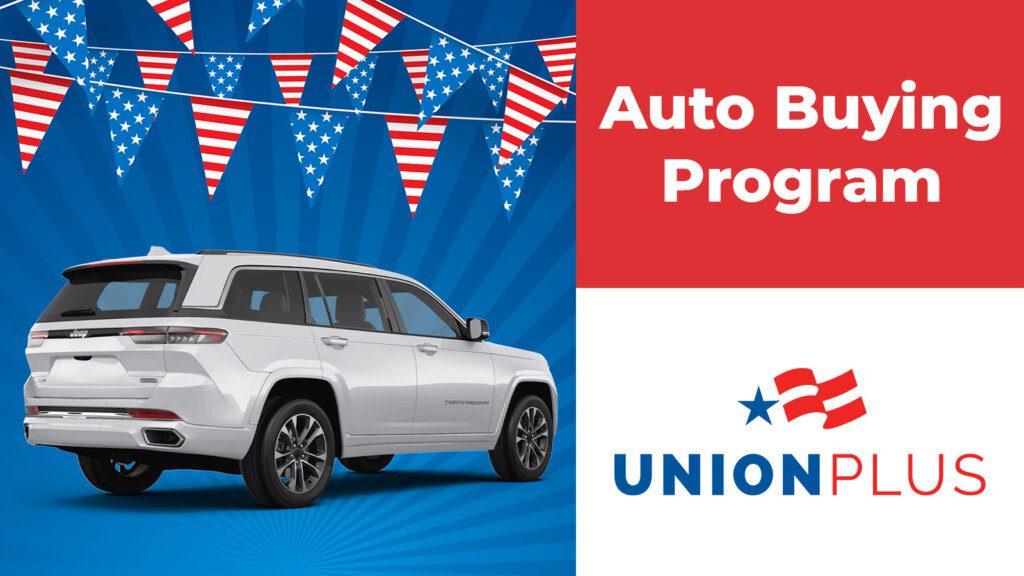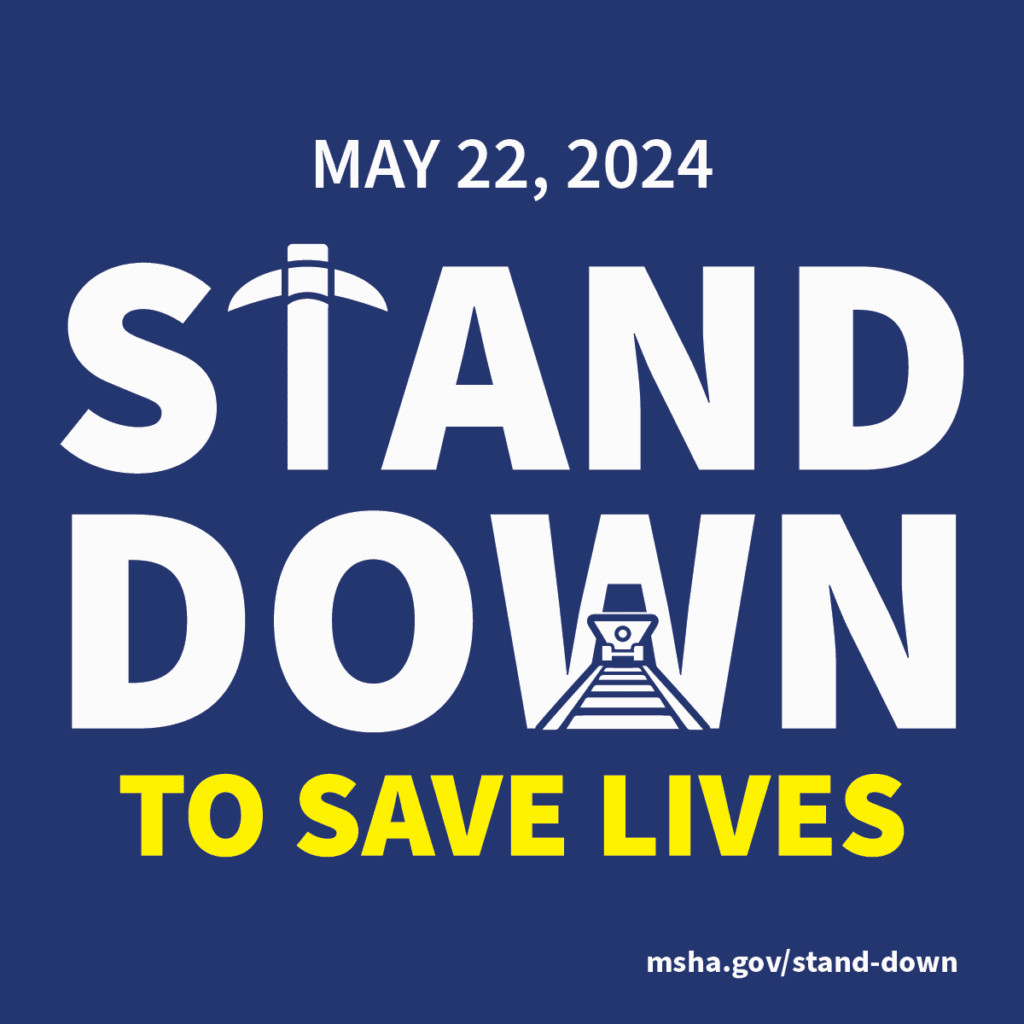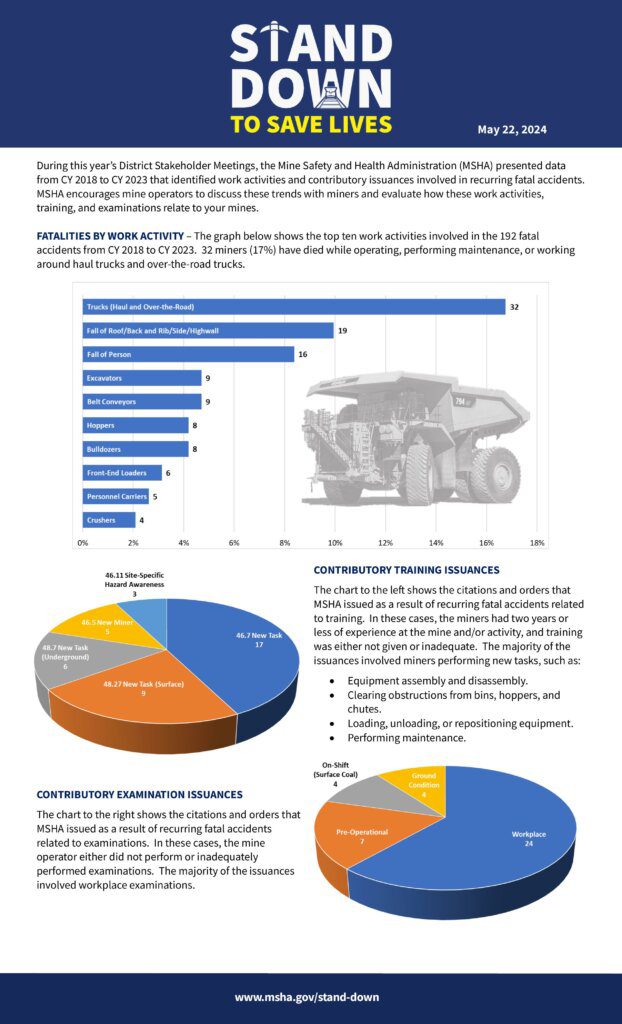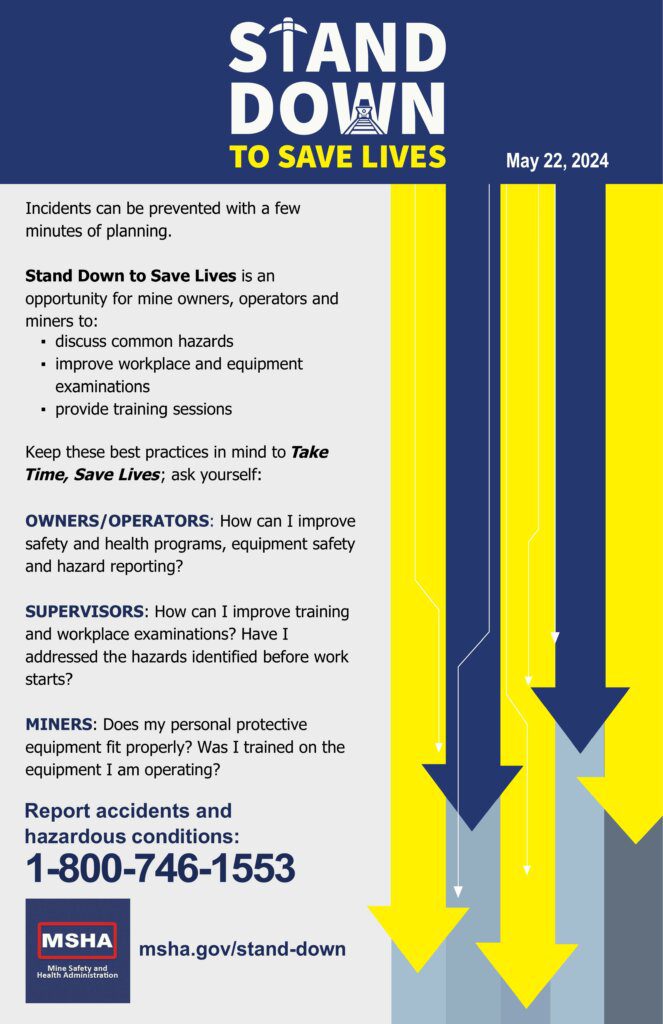 Evelyn McLeod, granddaughter of Bill Davis, a New Waterford miner shot down by police firing at protesters in 1925, lays a wreath with her grand nephews Parker, 5, second left, and Lucas, 7, right, at the Davis Day ceremony in Sydney Mines Sunday. At left is Hughie MacArthur, a retired United Mine Workers of America representative and mine safety co-ordinator. BARB SWEET/CAPE BRETON POST
Evelyn McLeod, granddaughter of Bill Davis, a New Waterford miner shot down by police firing at protesters in 1925, lays a wreath with her grand nephews Parker, 5, second left, and Lucas, 7, right, at the Davis Day ceremony in Sydney Mines Sunday. At left is Hughie MacArthur, a retired United Mine Workers of America representative and mine safety co-ordinator. BARB SWEET/CAPE BRETON POST
SOURCE: saltwire
DATE: 6/11/2023
SYDNEY MINES, N.S. — As the Men of the Deeps sang “there’s a pick and shovel waiting down the Coal Town Road,” Lorraine Head teared up as she had a number of times Sunday morning.
Nearly 100 years — 98 to be exact — after the gruesome events that inspired Davis Day, the descendent of the man it honours broke down on the grounds of the Miner’s Park in Sydney Mines.
“My mother, her siblings — always, always,” she said of the motivation to return each year to the ceremony she has been attending since she was a little girl.
Davis Day is named for her grandfather, New Waterford resident William Davis, 38, who was one of the coal miners protesting deplorable conditions at a Cape Breton coal mine near Waterford Lake in 1925.
The British Empire Steel Corporation, which owned the mine, cut off the miners’ credit at the company store and also cut off their access to water and electricity, creating a desperate situation.
On June 11, the protest turned violent. As many as 2,000 coal miners marched toward Waterford Lake and British Empire Steel Corporation police shot at them.
Davis was killed, leaving behind a widow and nine children, as well as a 10th on the way.
 Evelyn McLeod, granddaughter of Bill Davis, a miner shot down by police firing at protesters in 1925, lays a wreath with her grand nephews Parker, 5, left, and Lucas, 7, at the Davis Day ceremony in Sydney Mines Sunday. BARB SWEET/CAPE BRETON POST
Evelyn McLeod, granddaughter of Bill Davis, a miner shot down by police firing at protesters in 1925, lays a wreath with her grand nephews Parker, 5, left, and Lucas, 7, at the Davis Day ceremony in Sydney Mines Sunday. BARB SWEET/CAPE BRETON POST
Great-great grandson Adam Woods of Scotchtown, his wife Chantal and their two boys Lucas, 7 and Parker, 5, were there Sunday too.
The young boys laid a wreath with their great aunt, Evelyn McLeod.
“It’s really nice for our boys to be part of a legacy like that,” said Chantal Woods of the wreath laying.
 The Men of the Deeps perform at the Davis Day church service at Trinity Anglican Church in Sydney Mines Sunday. BARB SWEET/CAPE BRETON POST
The Men of the Deeps perform at the Davis Day church service at Trinity Anglican Church in Sydney Mines Sunday. BARB SWEET/CAPE BRETON POST
After the ceremony, members of the Davis family, like others who laid wreaths for loved ones at the miners memorial along with organizations, unions and politicians, brought the wreath to Bill Davis’ grave.
Norma MacDonald noted when the date, June 11, lands on a school day, the tradition in the family has been to keep the kids home out of respect.
They also realize the importance of passing on the legacy of attending on behalf of the family.
“It’s nice the younger ones are coming in,” McLeod said.
The horrific events have been settling in generation after generation.
“(It was) probably teenage years before I even realized how important it was going to the ceremony,” Adam Woods said, adding his kids now tell their classmates about the history of it.
“The history behind it, to learn a lot more about it and listen to the stories of the family and how it affected everything.”
The annual event not only recognizes that godawful 1925 event, but all miners and the tragedies that devastated families across Nova Scotia.
 It was an emotional day for Lorraine Head Sunday at the Davis Day church service and ceremony in Sydney MInes. The event honours her grandfather, Bill Davis, who was shot and killed in a protest in 1925. It also honours miners and all touched by coal mining tragedy. BARB SWEET/CAPE BRETON POST
It was an emotional day for Lorraine Head Sunday at the Davis Day church service and ceremony in Sydney MInes. The event honours her grandfather, Bill Davis, who was shot and killed in a protest in 1925. It also honours miners and all touched by coal mining tragedy. BARB SWEET/CAPE BRETON POST
Among the losses
Dan Jimmy White of Glace Bay attends the ceremony every year to honour the 12 men who died because of injuries from the Feb. 24, 1979 explosion at No. 26 colliery in Glace Bay.
They were workmates and friends and on the day of the explosion, White said he was tasked with blacking out the windows with tar paper in his carpentry shop at the mine as it was being used for the bodies.
“It was a terrible, terrible day in my life,” said White, who had been underground before he was given a surface job as a carpenter.
 Jimmy Dan White of Glace Bay sits in the Trinity Anglican Church in Sydney Mines Sunday for Davis Day events. He was tasked with covering the windows of his mine carpentry shop with black tar paper as he said it was used to bring bodies during the 1979 Glace Bay Mine disaster. BARB SWEET/CAPE BRETON POST
Jimmy Dan White of Glace Bay sits in the Trinity Anglican Church in Sydney Mines Sunday for Davis Day events. He was tasked with covering the windows of his mine carpentry shop with black tar paper as he said it was used to bring bodies during the 1979 Glace Bay Mine disaster. BARB SWEET/CAPE BRETON POST
His eyes watered as he spoke of his friends and said attending each year allows him to work through the grief that lingers still and then he sets it aside until the next anniversary.
Later after the church portion of the ceremony, he said, “If that wouldn’t heal your soul, nothing would.”
Loie McNeil of Glace Bay heard about the Glace Bay explosion on the radio at 6 a.m. that day with her two small daughters, Michelle, then four and Sherry, then nine.
Her father-in-law, Freddie Y McNeil came by to say it didn’t look good.
The day would indeed bring news that her husband, Reggie Y, was gone.
“Everything went black,” Loie McNeil said.
 Sunday as the Davis Day ceremony in Sydney Mines, mining disaster widow Loie McNeil, left, of Glace Bay and her daughter, Michelle laid a wreath for miner Reggie Y. McNeil, who was killed in the 1979 Glace Bay mine explosion. BARB SWEET/CAPE BRETON POST
Sunday as the Davis Day ceremony in Sydney Mines, mining disaster widow Loie McNeil, left, of Glace Bay and her daughter, Michelle laid a wreath for miner Reggie Y. McNeil, who was killed in the 1979 Glace Bay mine explosion. BARB SWEET/CAPE BRETON POST
Michelle has only hazy memories of her dad, such as him righting a three-wheel bicycle for her after it tipped over.
But every year they come to the service to honour him, and then bring the wreath to the cemetery.
“He was a good man, a good husband, a good worker,” Loie McNeil said, adding the family keeps his memory alive by talking about him and recognizing dates like his birthday.
 John and Joanne Turner attend the Davis Day church service at Trinity Anglican Church in Sydney Mines Sunday. BARB SWEET/CAPE BRETON POST
John and Joanne Turner attend the Davis Day church service at Trinity Anglican Church in Sydney Mines Sunday. BARB SWEET/CAPE BRETON POST
John Turner’s father, James, had to go to work at age 15 as his father Albert was killed while checking a mine after a rock fall in 1924. James eventually worked himself up to comptroller at Dominion Coal, Turner said.
“It was a very humble start,” said Turner of New Campbellton.
Having the church service preceding the Davis Day ceremony in Trinity Anglican was meaningful in another way.
“This church was constructed in 1924 and this ceiling was put in by the miners every night after the mines,” Joanne said of the men’s many years’ long labour, when they would take the scaffolding down for services and erect it again each week.
The miners’ sacrifices were underscored over and over Sunday.
“Life in this world is always dicey,” said Rev. Jackie Warren. “The life of a miner is the same.”
 Adam Woods of Scotchtown is the great-great grandson of New Waterford miner Bill Davis, who was shot and killed by police during a protest in 1925. He and his wife Chantal and their sons Lucas, 7, second left, and Parker, 5, attended the Davis Day memorial church service and ceremony Sunday in Sydney Mines. BARB SWEET/CAPE BRETON POST
Adam Woods of Scotchtown is the great-great grandson of New Waterford miner Bill Davis, who was shot and killed by police during a protest in 1925. He and his wife Chantal and their sons Lucas, 7, second left, and Parker, 5, attended the Davis Day memorial church service and ceremony Sunday in Sydney Mines. BARB SWEET/CAPE BRETON POST
Vigilance necessary
Nova Scotia Federation of Labour president Danny Kavanagh said the day is not just about mining, either, but protecting workplace safety.
And he said workers are vulnerable now unless workers, labour leaders and the public remain vigilant in watchdogging companies.
Before he took to the stage to be the guest speaker, Brian Sanson, international secretary treasurer of the United Mine Workers of America and based in Washington, D.C. said events such as Sunday’s are not as common, especially in the U.S.
“It’s very moving,” said the West Virginian.
“The sense of community … to pay this respect to their fallen forefathers is special.”
 Brian Sanson, international secretary treasurer of the United Mine Workers of America and based in Washington, D.C., was the guest speaker at the annual Davis Day memorial event Sunday in Sydney Mines. BARB SWEET/CAPE BRETON POST
Brian Sanson, international secretary treasurer of the United Mine Workers of America and based in Washington, D.C., was the guest speaker at the annual Davis Day memorial event Sunday in Sydney Mines. BARB SWEET/CAPE BRETON POST
During his speech he spoke of the coal mining labour strife in Alabama where a strike lasted two years, ending earlier this year with no gain.
He alleged police and county sheriffs were turned into coal company guards.
“We had union coal miners run over by cars on the picket lines. Miners were fired for doing nothing more than standing on the picket line and the company basically locked them out for two complete years because they wouldn’t bargain with the union in good faith. The Alabama court system failed the workers in Alabama miserably,” he said.
According to the Nova Scotia Museum of Industry, Davis was given the largest funeral the Town of New Waterford had ever seen. His death became a symbol of the determination and resilience of the miners in their struggles. Miners vowed they would never work on June 11 and for many years, they honoured that vow, the museum’s website notes.
A union convention that year was declared June 11 Davis Day.
In 2008 the province of Nova Scotia proclaimed An Act Respecting a Memorial Day to Honour Miners (Bill No. 189: William Davis Miners’ Memorial Day Act).
Roughly 100 people attended the church service and about 120 at the ceremony at Miner’s Park.

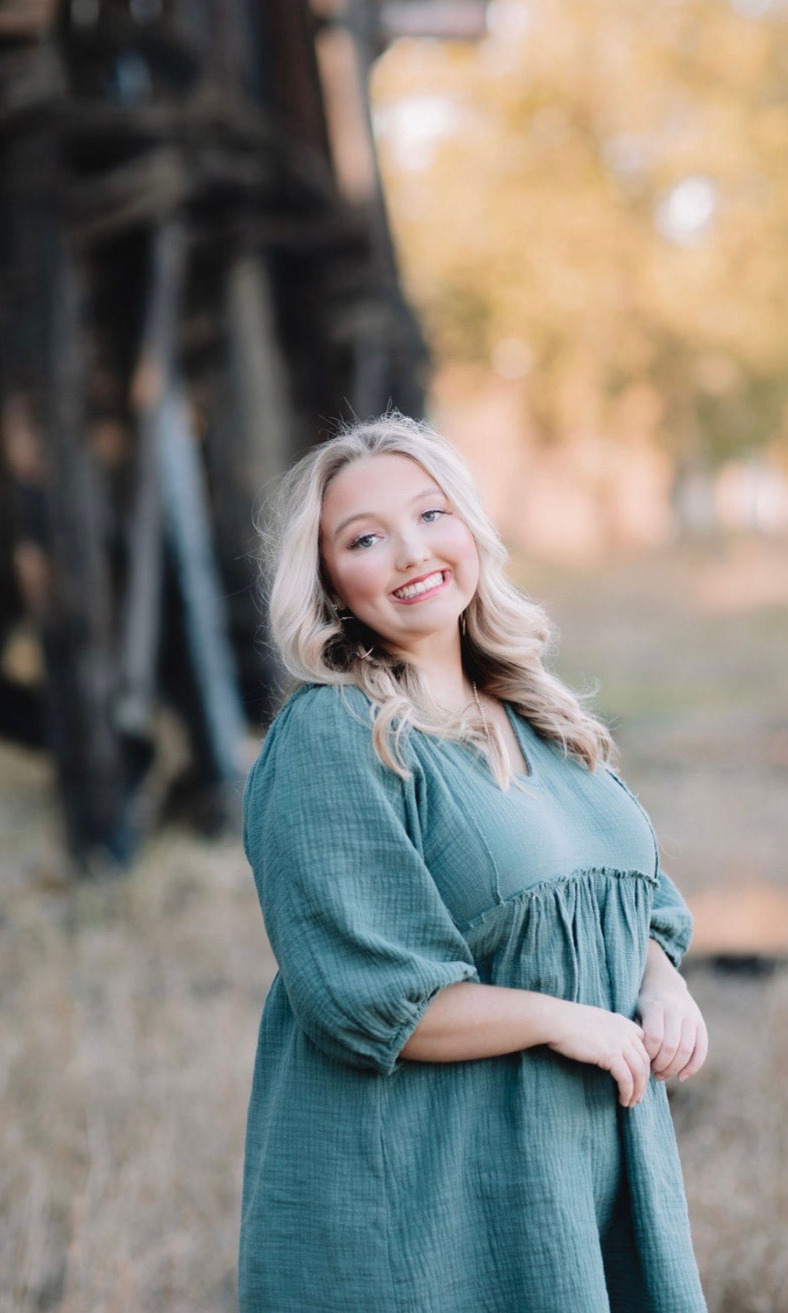


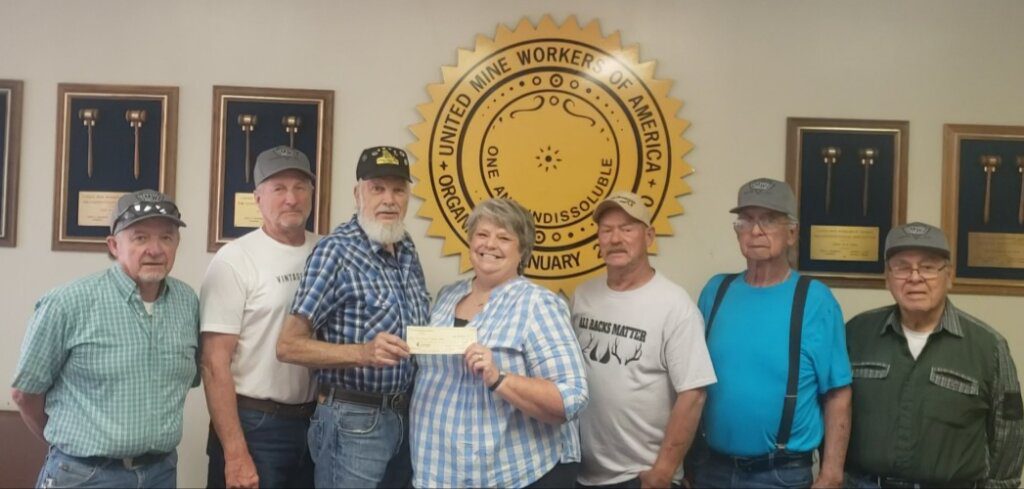
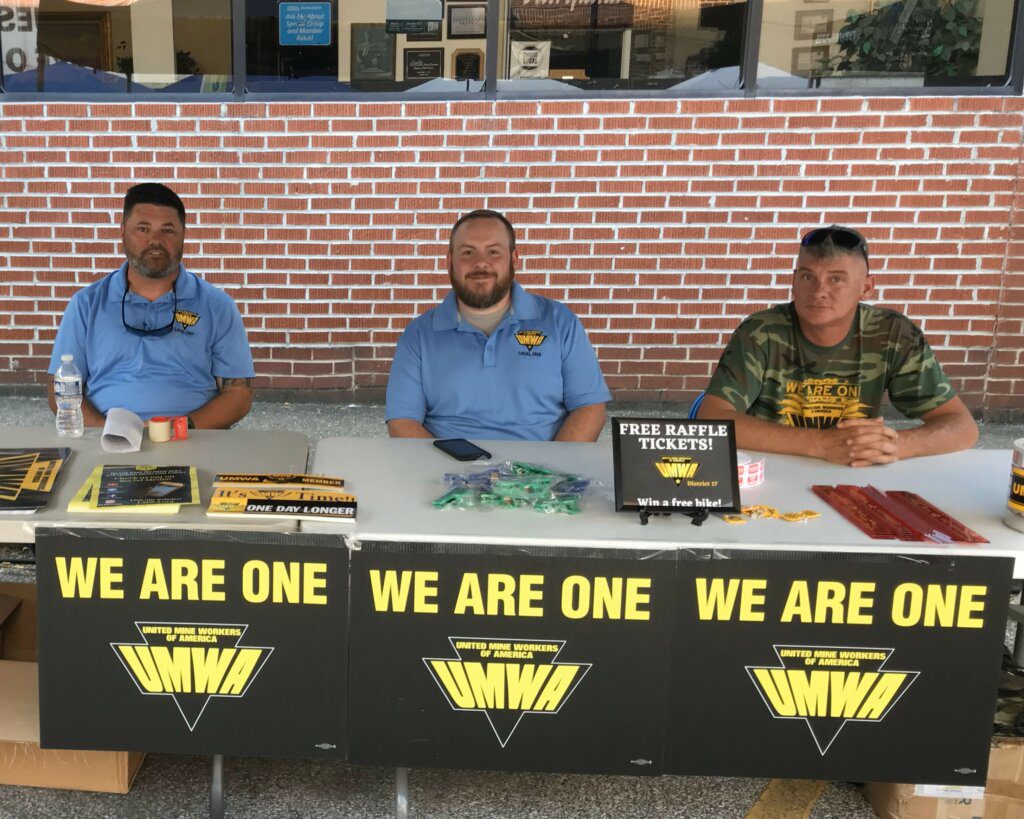
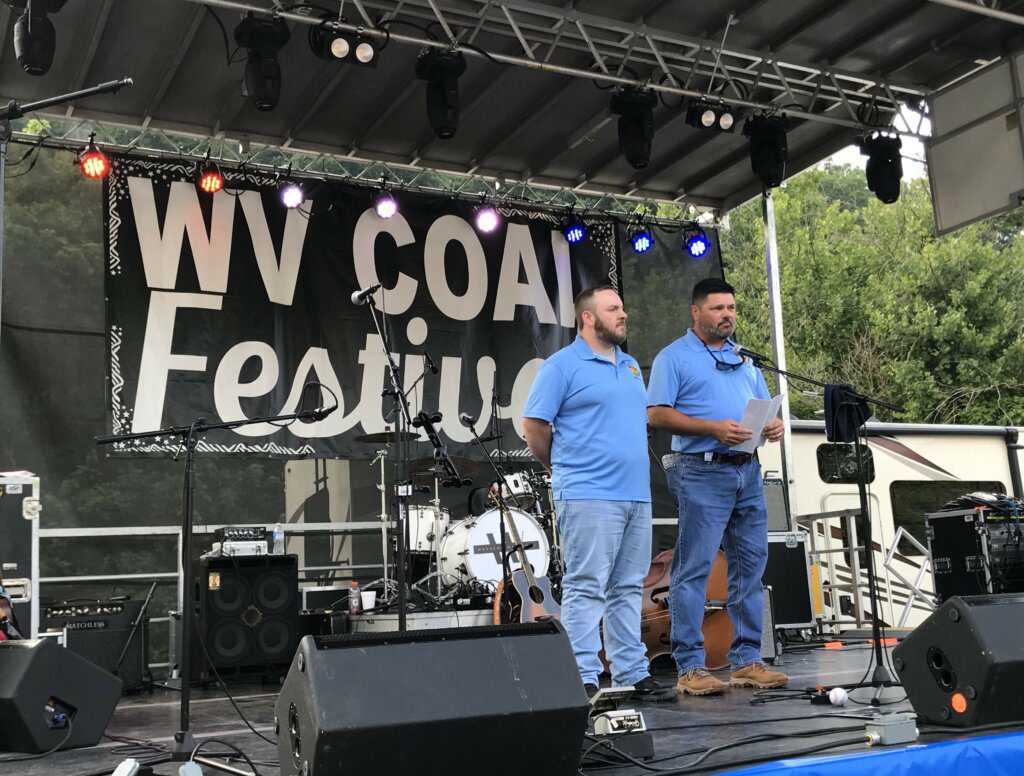
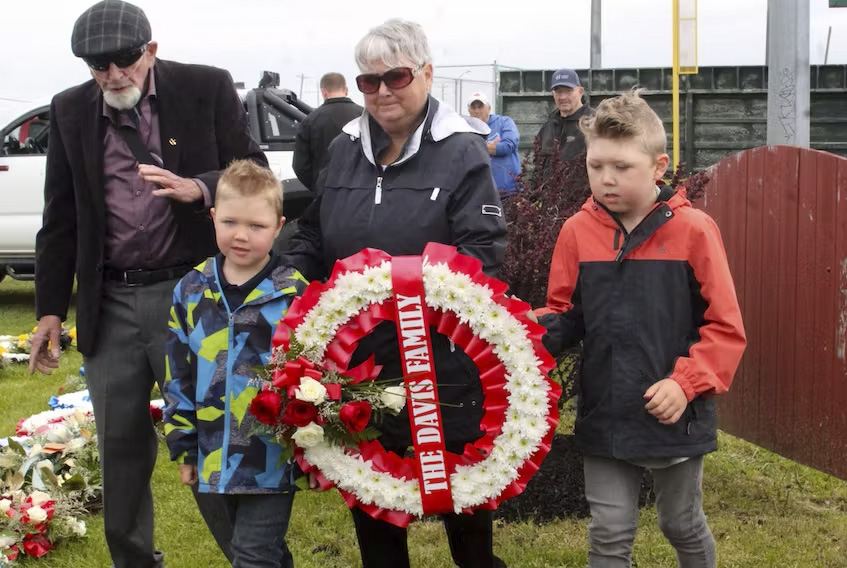 Evelyn McLeod, granddaughter of Bill Davis, a New Waterford miner shot down by police firing at protesters in 1925, lays a wreath with her grand nephews Parker, 5, second left, and Lucas, 7, right, at the Davis Day ceremony in Sydney Mines Sunday. At left is Hughie MacArthur, a retired United Mine Workers of America representative and mine safety co-ordinator. BARB SWEET/CAPE BRETON POST
Evelyn McLeod, granddaughter of Bill Davis, a New Waterford miner shot down by police firing at protesters in 1925, lays a wreath with her grand nephews Parker, 5, second left, and Lucas, 7, right, at the Davis Day ceremony in Sydney Mines Sunday. At left is Hughie MacArthur, a retired United Mine Workers of America representative and mine safety co-ordinator. BARB SWEET/CAPE BRETON POST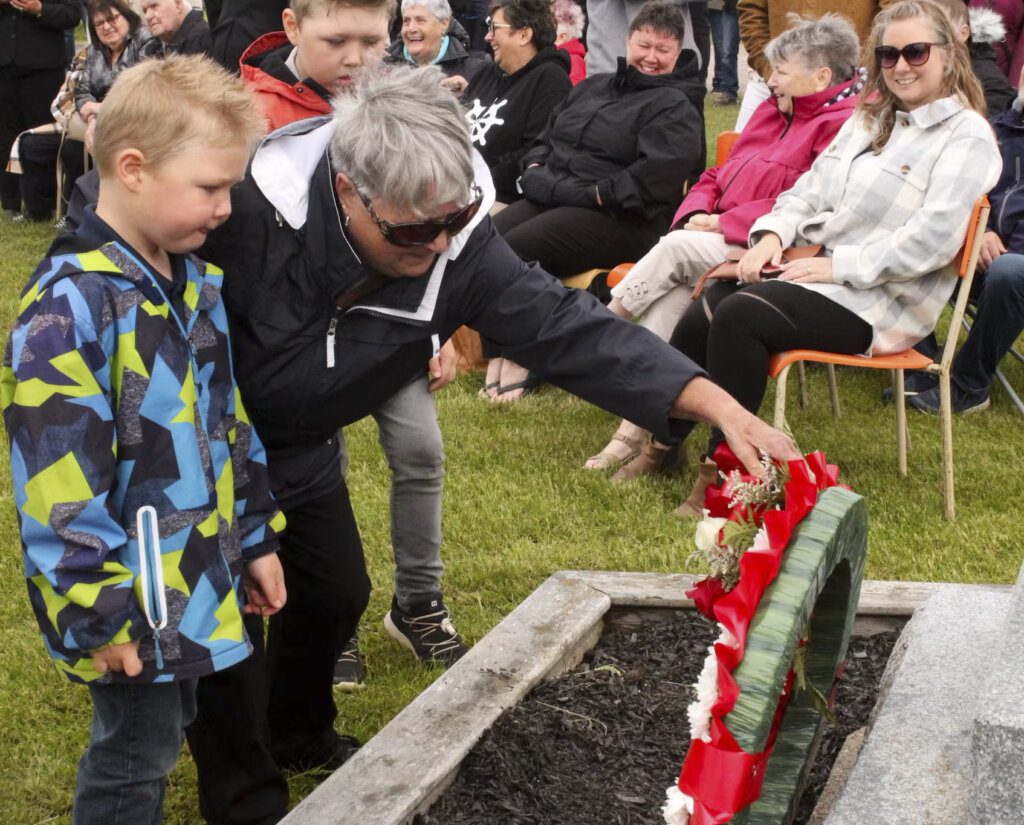 Evelyn McLeod, granddaughter of Bill Davis, a miner shot down by police firing at protesters in 1925, lays a wreath with her grand nephews Parker, 5, left, and Lucas, 7, at the Davis Day ceremony in Sydney Mines Sunday. BARB SWEET/CAPE BRETON POST
Evelyn McLeod, granddaughter of Bill Davis, a miner shot down by police firing at protesters in 1925, lays a wreath with her grand nephews Parker, 5, left, and Lucas, 7, at the Davis Day ceremony in Sydney Mines Sunday. BARB SWEET/CAPE BRETON POST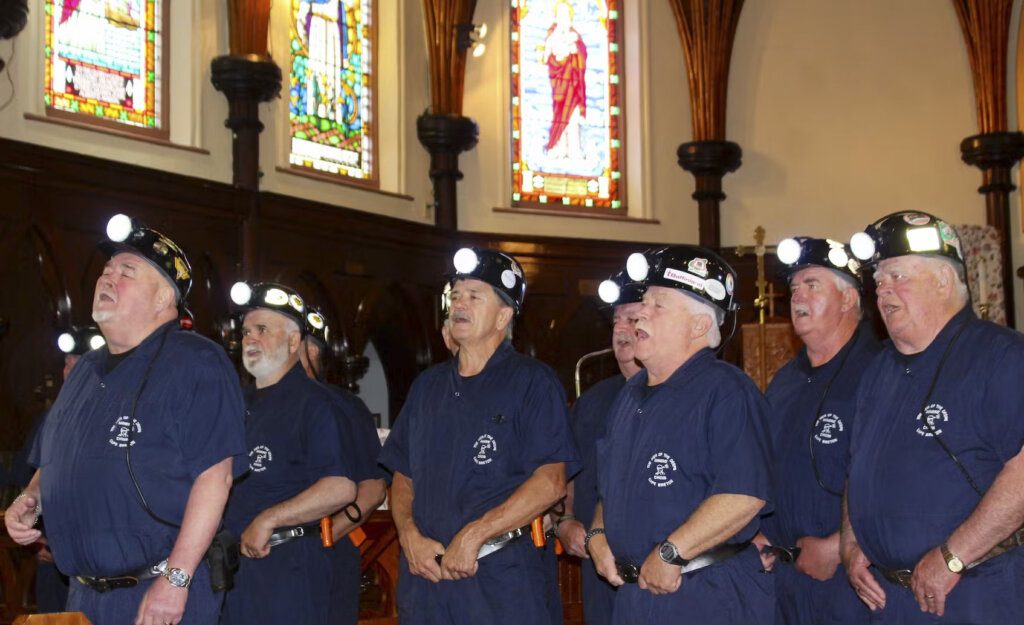 The Men of the Deeps perform at the Davis Day church service at Trinity Anglican Church in Sydney Mines Sunday. BARB SWEET/CAPE BRETON POST
The Men of the Deeps perform at the Davis Day church service at Trinity Anglican Church in Sydney Mines Sunday. BARB SWEET/CAPE BRETON POST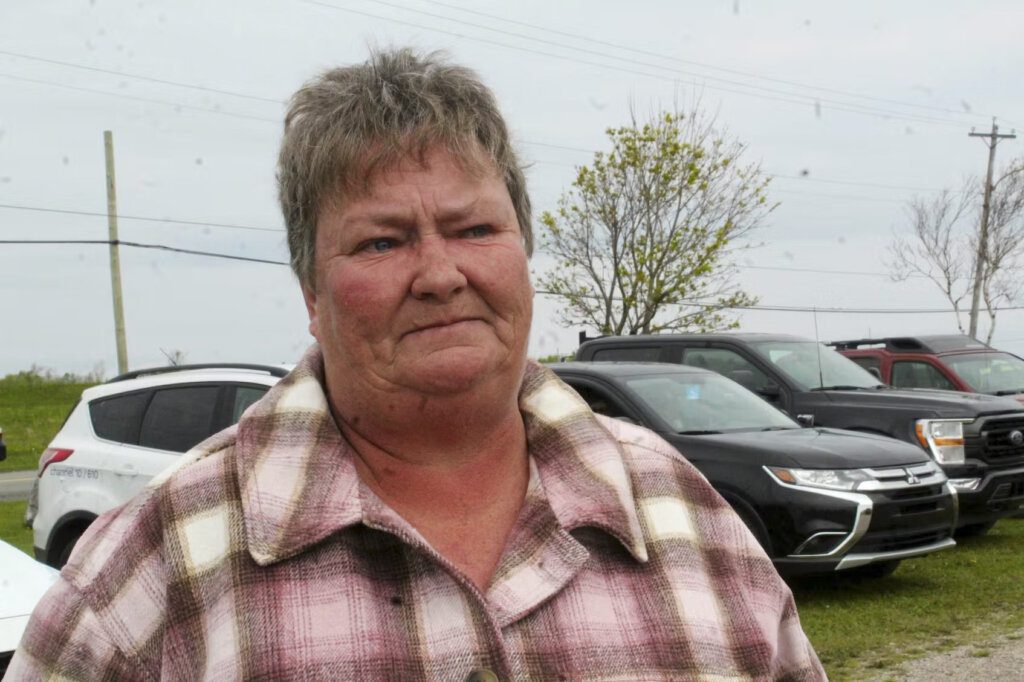 It was an emotional day for Lorraine Head Sunday at the Davis Day church service and ceremony in Sydney MInes. The event honours her grandfather, Bill Davis, who was shot and killed in a protest in 1925. It also honours miners and all touched by coal mining tragedy. BARB SWEET/CAPE BRETON POST
It was an emotional day for Lorraine Head Sunday at the Davis Day church service and ceremony in Sydney MInes. The event honours her grandfather, Bill Davis, who was shot and killed in a protest in 1925. It also honours miners and all touched by coal mining tragedy. BARB SWEET/CAPE BRETON POST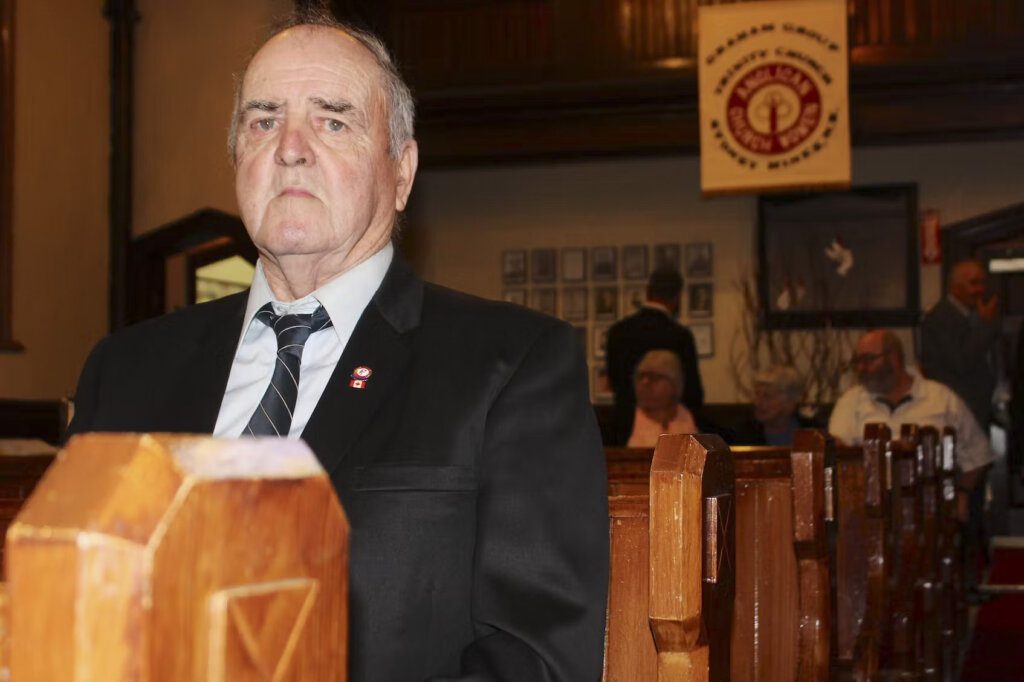 Jimmy Dan White of Glace Bay sits in the Trinity Anglican Church in Sydney Mines Sunday for Davis Day events. He was tasked with covering the windows of his mine carpentry shop with black tar paper as he said it was used to bring bodies during the 1979 Glace Bay Mine disaster. BARB SWEET/CAPE BRETON POST
Jimmy Dan White of Glace Bay sits in the Trinity Anglican Church in Sydney Mines Sunday for Davis Day events. He was tasked with covering the windows of his mine carpentry shop with black tar paper as he said it was used to bring bodies during the 1979 Glace Bay Mine disaster. BARB SWEET/CAPE BRETON POST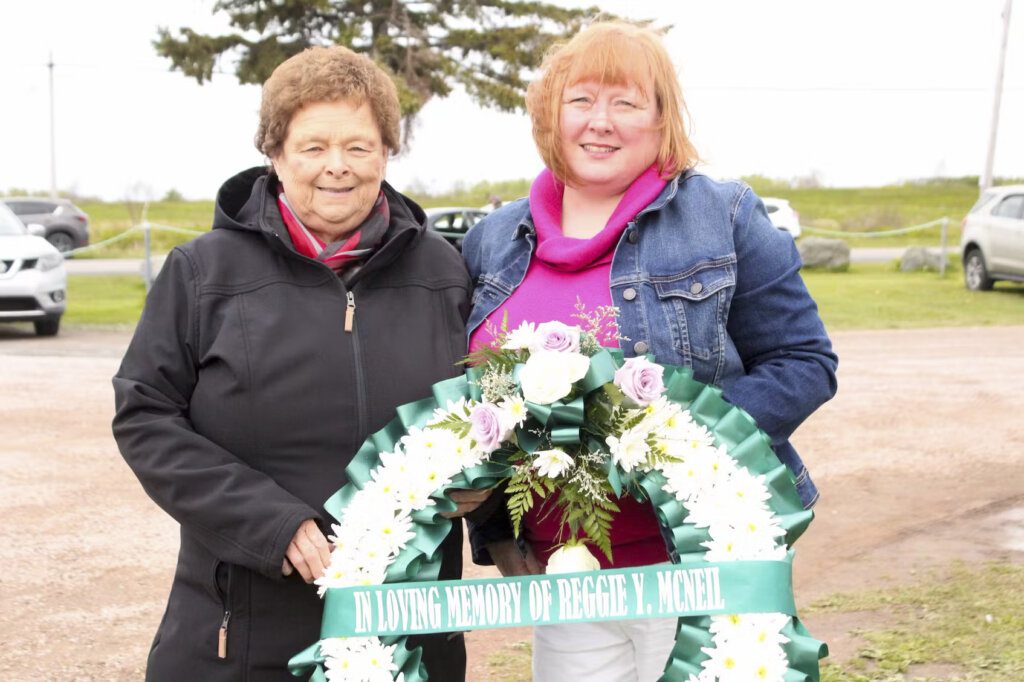 Sunday as the Davis Day ceremony in Sydney Mines, mining disaster widow Loie McNeil, left, of Glace Bay and her daughter, Michelle laid a wreath for miner Reggie Y. McNeil, who was killed in the 1979 Glace Bay mine explosion. BARB SWEET/CAPE BRETON POST
Sunday as the Davis Day ceremony in Sydney Mines, mining disaster widow Loie McNeil, left, of Glace Bay and her daughter, Michelle laid a wreath for miner Reggie Y. McNeil, who was killed in the 1979 Glace Bay mine explosion. BARB SWEET/CAPE BRETON POST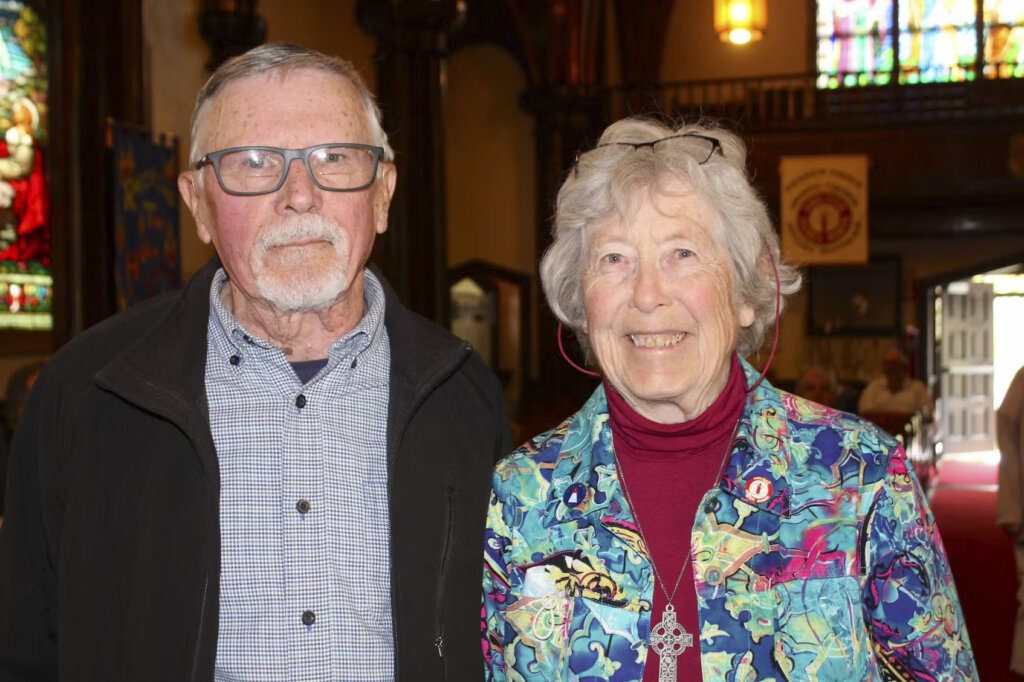 John and Joanne Turner attend the Davis Day church service at Trinity Anglican Church in Sydney Mines Sunday. BARB SWEET/CAPE BRETON POST
John and Joanne Turner attend the Davis Day church service at Trinity Anglican Church in Sydney Mines Sunday. BARB SWEET/CAPE BRETON POST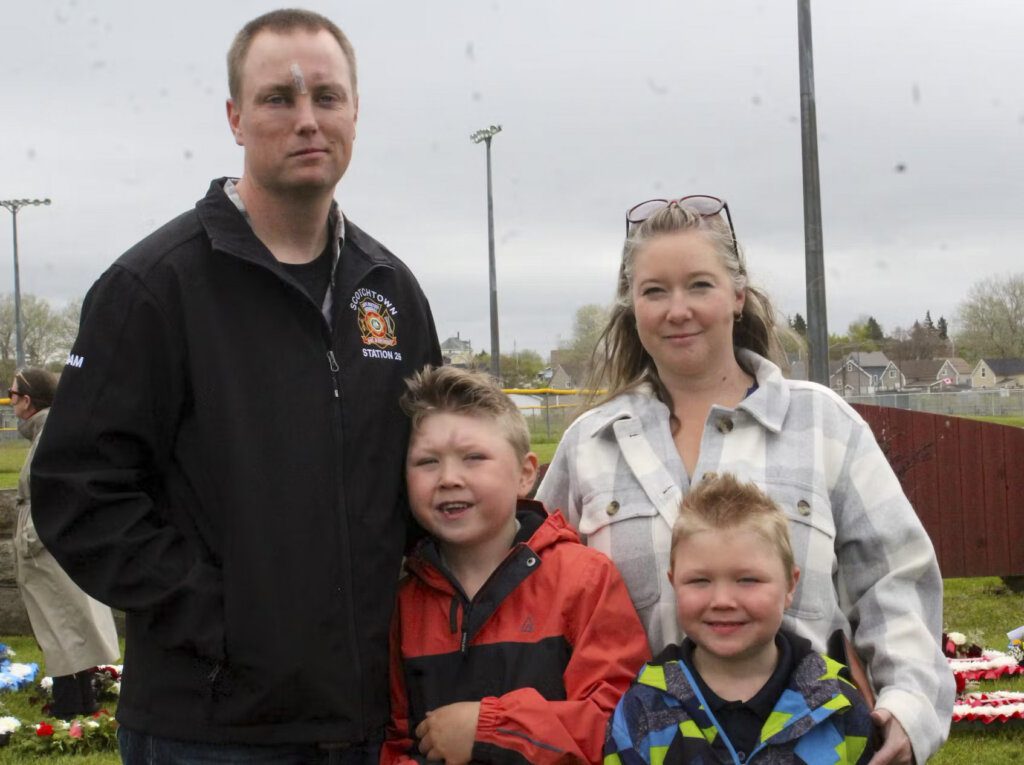 Adam Woods of Scotchtown is the great-great grandson of New Waterford miner Bill Davis, who was shot and killed by police during a protest in 1925. He and his wife Chantal and their sons Lucas, 7, second left, and Parker, 5, attended the Davis Day memorial church service and ceremony Sunday in Sydney Mines. BARB SWEET/CAPE BRETON POST
Adam Woods of Scotchtown is the great-great grandson of New Waterford miner Bill Davis, who was shot and killed by police during a protest in 1925. He and his wife Chantal and their sons Lucas, 7, second left, and Parker, 5, attended the Davis Day memorial church service and ceremony Sunday in Sydney Mines. BARB SWEET/CAPE BRETON POST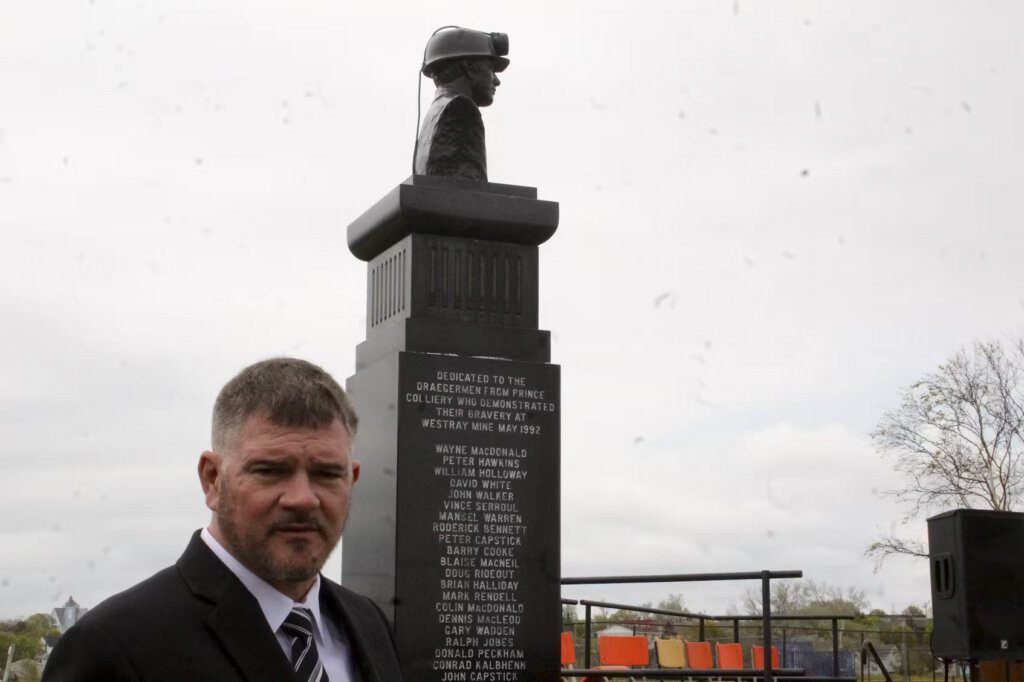 Brian Sanson, international secretary treasurer of the United Mine Workers of America and based in Washington, D.C., was the guest speaker at the annual Davis Day memorial event Sunday in Sydney Mines. BARB SWEET/CAPE BRETON POST
Brian Sanson, international secretary treasurer of the United Mine Workers of America and based in Washington, D.C., was the guest speaker at the annual Davis Day memorial event Sunday in Sydney Mines. BARB SWEET/CAPE BRETON POST